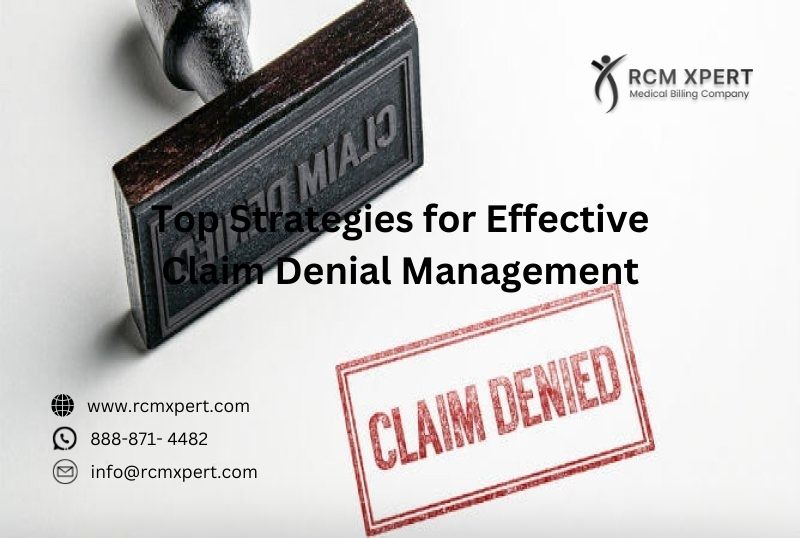One of the primary concerns for healthcare providers and medical practitioners is the rising rate of claim denials. These denials negatively impact the revenue cycle, making it crucial to reduce them to maintain optimal revenue.
Importance of Reducing Claim Denials Management
Reducing claim denials is essential to maximize your practice’s revenue. It is vital to prevent these denials initially and, if they occur, to implement an effective denial management plan. The effectiveness of this plan, often provided by outsourced medical billing companies, significantly influences your cash flow and the overall reduction in denials.
Key Claim Denial Management Strategies
1. Ensure Proper Documentation
A common reason for claim denials is missing information. When a payer finds the submitted claims unsatisfactory, it leads to denials. Proper documentation with complete information is essential to minimize these denials. Utilizing Electronic Health Records (EHR) for billing can provide an electronic record of necessary patient data, further reducing errors.
2. Regular Staff Training
Frequent training and grooming of medical billing staff are crucial. Regular training helps staff avoid billing errors that lead to claim denials and equips them with the skills needed for effective denial management. Training sessions should cover both error prevention and claim resubmission procedures.
3. Maintain Clear Communication
Effective communication is vital to minimize medical billing errors, which are a major cause of claim denials. Communication between front desk staff, the billing team, and payers helps resolve issues and manage denials efficiently. Clear communication at every stage of the billing process is essential for reducing errors and conflicts.
4. Conduct Billing Audits
Performing audits on prior claims is a significant strategy for managing denials. Audits help identify billing errors and inaccuracies that lead to claim denials. Conducting audits before claim submission can prevent denials and provide insights into the root causes of denials, aiding in their management.
5. Implement Preventive Measures
Having a preventive plan in place to limit denials is one of the most effective strategies. A preventive strategy helps suppress activities that lead to denials, keeping the billing process transparent and clean. This proactive approach saves time and avoids the complexities of claim resubmission and conflict resolution.
6. Review Previous Denials
Analyzing previous claim denials and the management strategies employed provides valuable insights. Reviewing past denials helps identify repetitive mistakes and informs future actions to avoid and manage claims effectively.
7. Establish an Active Denial Management Process
An active denial management process is essential. Develop a set of measures for denial management as part of your medical coding and billing strategies. Categorize each denial type with its effective solution to facilitate quick and accurate responses to denials.
8. Utilize Technical Support
Manual error correction and denial management can be time-consuming. Implementing technical support, such as medical billing software, can significantly reduce billing errors and denial rates. Modern and effective software solutions provide quick access to necessary information, aiding in denial management.
9. Understand Insurance Policies
Knowledge of insurance policies and payment plans is crucial for both minimizing denials and managing them when they occur. Understanding these policies helps identify and correct errors in submitted claims that do not align with the payer’s plan.
Common Reasons for Increasing Claim Denials
I. Billing Inaccuracy
Choosing the best medical billing service is essential to avoid billing inaccuracies. Incorrect bills and codes are leading causes of claim denials. Accurate billing is crucial for reducing denial rates and ensuring timely reimbursements.
II. Duplicate Claims
Submitting duplicate claims for a single procedure or treatment increases denial rates. Integrating top-quality software solutions with your billing process can help avoid these issues and potential legal actions.
III. Lack of Expertise
Inadequate skills and billing knowledge contribute significantly to billing inaccuracies and subsequent denial rates. Select medical billing services with the expertise required for your specialty to ensure accurate billing.
Conclusion
To maximize reimbursements and increase revenue, it is crucial to address billing inaccuracies that lead to increased denials. Implementing professional denial management strategies and considering expert medical billing services can help achieve error-free billing processes, minimizing denials and maximizing reimbursements.





